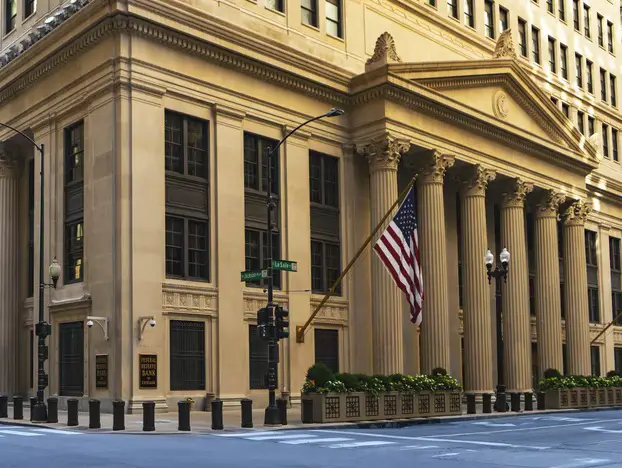Federal Reserve policy meeting minutes show that a “substantial majority” of officials beleive it will soon be time to slow the rate of interest rate increases. The minutes show the central bank now appears poised to shift away from the recent 75 basis point rate hikes that were seen at the last four meetings, when it meets again in early December for its next policy meeting.
The minutes showed, “A number of participants observed that, as monetary policy approached a stance that was sufficiently restrictive to achieve the Committee’s goals, it would become appropriate to slow the pace of increase in the target range for the federal funds rate. In addition, a substantial majority of participants judged that a slowing in the pace of increase would likely soon be appropriate.”
Although the minutes showed a desire to slow the pace of rate hikes, they also indicated policy makers see the peak rate they are envisioning has likely increased in recent months.
In the minutes officials noted the persistence of inflation would indicate that rates will probably settle at levels, “somewhat higher than they had previously expected.”
Stocks rose after the release of the minutes on optimism a slowing pace of rate hikes will be good for the economy.
In the minutes, policymakers noted that since rates have begun to become “sufficiently restrictive,” now the focus of the central bank should shift from raising rates rapidly, to exactly how high they should be taken.
According to the minutes, “Participants agreed that communicating this distinction to the public was important in order to reinforce the Committee’s strong commitment to returning inflation to the 2 percent objective.”
Several policymakers worried also that continued rapid tightening could create dislocations or instability in the financial system.
Although officials were overall in agreement on slowing the pace of rate hikes, there was still disagreement over the peak level at which rates should ultimately settle, to bring inflation back down to the target rate of 2%.
Officials seemed to lean toward using a more restrictive policy stance, seeing it as a more prudent risk given the countervailing risks of allowing inflation to entrench. Members noted that recent data did not offer much evidence inflation had begun to retreat.
Fed Chair Powell has indicated that rates will now have to go higher than initially predicted, to reach a point that is “sufficiently restrictive.” At the Fed’s policy meeting in September, it was estimated rates would peak at 4.6% next year. The December meeting will produce new projections.
November’s meeting saw a fourth consecutive 75 basis point rate hike enacted, raising the key rate to a range of 3.75% to 4%. That was the highest level seen since the end of 2007.
Presently markets are pricing in a 50 basis point hike for the December meeting.
Both Fed Governor Christopher Waller and Cleveland Fed President Loretta Mester have made comments indicating they are more comfortable slowing the pace of rate hikes, and raising rates by 50 basis points at the December meeting.
Not all Fed officials however have committed to slowing the pace of rate hikes. San Francisco Fed President Mary Daly said Monday that if any forthcoming inflation numbers came in hot, the Fed could still choose to enact a fifth straight 75 basis point hike.

